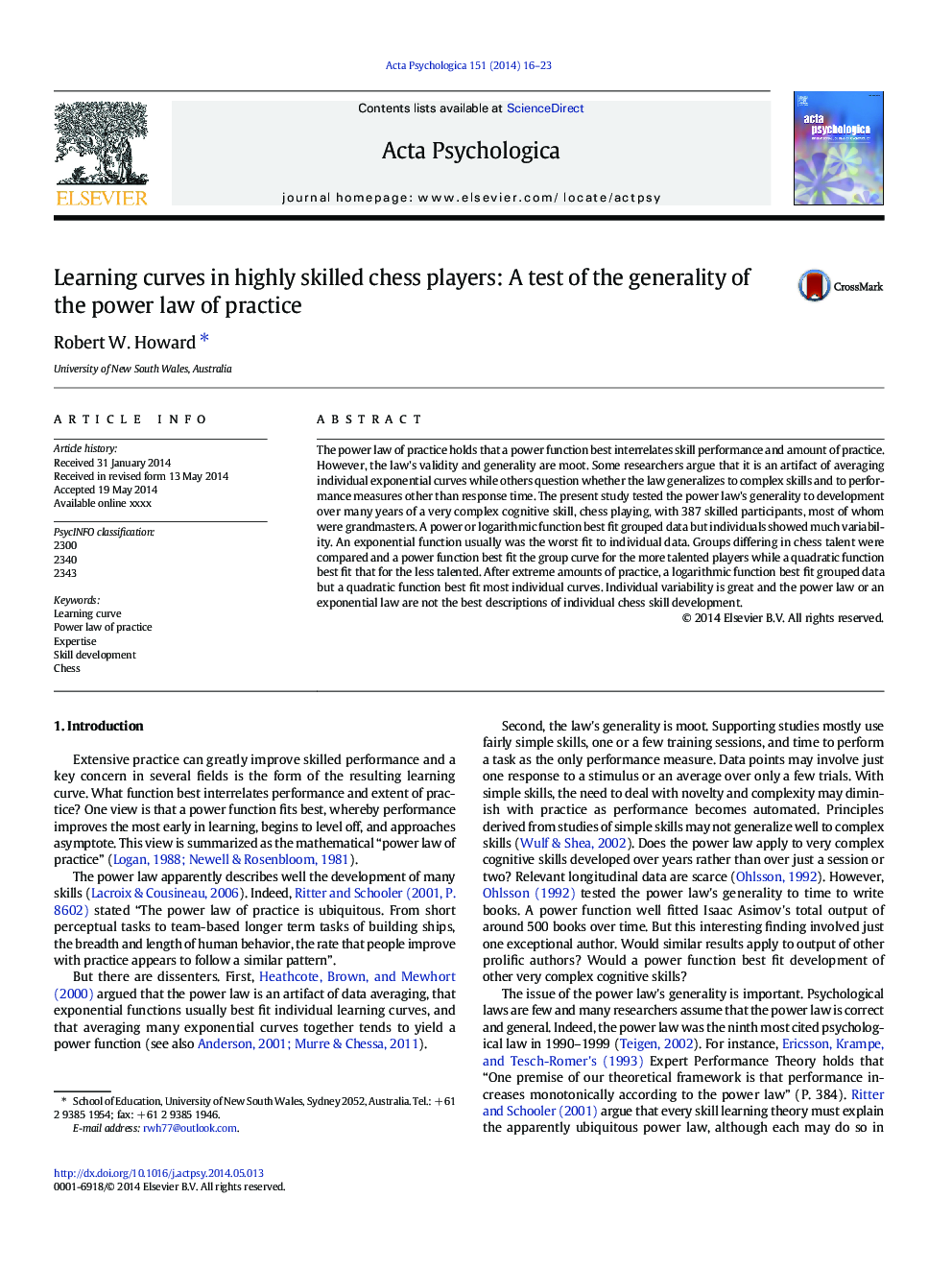| Article ID | Journal | Published Year | Pages | File Type |
|---|---|---|---|---|
| 7277525 | Acta Psychologica | 2014 | 8 Pages |
Abstract
The power law of practice holds that a power function best interrelates skill performance and amount of practice. However, the law's validity and generality are moot. Some researchers argue that it is an artifact of averaging individual exponential curves while others question whether the law generalizes to complex skills and to performance measures other than response time. The present study tested the power law's generality to development over many years of a very complex cognitive skill, chess playing, with 387 skilled participants, most of whom were grandmasters. A power or logarithmic function best fit grouped data but individuals showed much variability. An exponential function usually was the worst fit to individual data. Groups differing in chess talent were compared and a power function best fit the group curve for the more talented players while a quadratic function best fit that for the less talented. After extreme amounts of practice, a logarithmic function best fit grouped data but a quadratic function best fit most individual curves. Individual variability is great and the power law or an exponential law are not the best descriptions of individual chess skill development.
Related Topics
Life Sciences
Neuroscience
Cognitive Neuroscience
Authors
Robert W. Howard,
